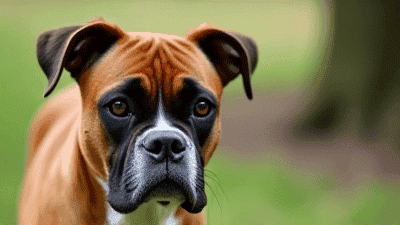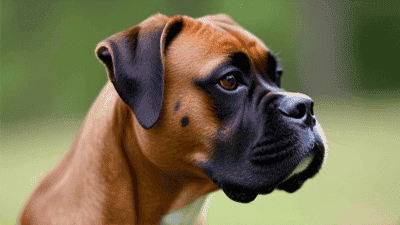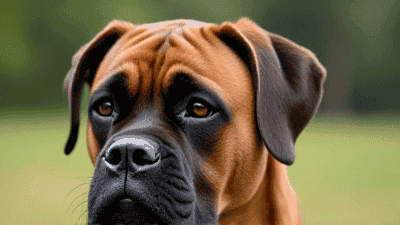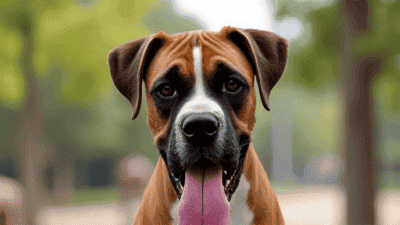
Boxers are one of the most beloved dog breeds, known for their boundless energy, playful nature, and unwavering loyalty. These medium to large dogs are often referred to as "clownish" due to their humorous antics, but they are also incredibly intelligent and make excellent companions for families, athletes, and active individuals. However, owning a Boxer requires a commitment to proper training, socialization, and care to ensure they thrive.
The Boxer breed traces its origins back to ancient times, with ancestors believed to be related to the Bullenbeisser, a now-extinct German hunting dog used for tracking and subduing large game like boars.
In the late 19th century, German breeders developed the modern Boxer by crossing Bullenbeissers with Bulldogs and other breeds. The result was a strong, agile, and versatile dog that excelled in various roles, including hunting, guarding, and companionship.
Boxers gained popularity in the early 20th century, particularly in Europe and the United States. They were used as military and police dogs during World War I and II, and their loyal nature made them cherished family pets.

Boxers are medium to large dogs, with males typically weighing 65 to 80 pounds and females weighing 50 to 65 pounds. They have a muscular, athletic build that reflects their energy and strength.
Boxers have a short, smooth coat that is easy to maintain. Common coat colors include fawn, brindle, and white, though white Boxers are often prone to health issues and may not be recognized by some breed standards.
Boxers are known for their expressive faces, with a square jaw, dark eyes, and a distinctive underbite. Their ears are typically cropped in some regions, though natural ears are becoming more common.
Traditionally, Boxers have docked tails, but many countries have banned this practice, and natural tails are increasingly accepted.
Boxers are high-energy dogs that love to play and explore. They are known for their "wiggle butt" dance and comical behavior, which makes them excellent entertainers.
Boxers are fiercely loyal to their families and make excellent guard dogs. They are naturally protective and will alert their owners to potential threats.
Boxers are highly intelligent and eager to please, making them relatively easy to train. However, their playful nature can sometimes lead to stubbornness, so consistent training is essential.
Boxers are generally friendly and social dogs that get along well with children, other pets, and strangers. Early socialization is key to ensuring they develop into well-rounded adults.
Boxers thrive on human companionship and love being part of family activities. They are affectionate dogs that form strong bonds with their owners.

Begin training and socializing your Boxer as early as possible. Puppies are more receptive to learning and adapting to new experiences.
Boxers respond well to positive reinforcement techniques, such as treats, praise, and play. Avoid harsh punishments, as these can lead to fear or aggression.
Consistency is crucial when training a Boxer. Use clear, simple commands and ensure all family members follow the same rules.
Expose your Boxer to a variety of people, animals, and environments to help them develop good social skills and reduce the risk of fear or aggression.
Basic obedience commands, such as sit, stay, come, and leave it, are essential for managing your Boxer’s energy and ensuring their safety.
Boxers are smart dogs that need mental stimulation to prevent boredom. Use puzzle toys, interactive games, and training exercises to keep their minds engaged.
Boxers can be strong pullers, so leash training is important. Use a harness and teach them to walk calmly beside you.
Crate training can provide your Boxer with a safe, comfortable space and help with housebreaking. Make the crate a positive environment with treats and toys.
Boxers are high-energy dogs that require at least 60 to 90 minutes of exercise daily. This can include walks, runs, playtime, and training sessions.
Boxers love to play and enjoy activities like fetch, tug-of-war, and agility training. Interactive toys can also keep them entertained.
Incorporate mental challenges into your Boxer’s routine, such as scent work or obedience drills, to prevent boredom and destructive behavior.
Many Boxers enjoy swimming, which is a great low-impact exercise for their joints. Always supervise them around water.
Boxers thrive on social interaction, so consider activities like doggy playdates or trips to the dog park.

Boxers have short, easy-to-maintain coats. Brush them weekly to remove loose hair and distribute natural oils. Bathing is only necessary when they get dirty.
Trim your Boxer’s nails every 2 to 3 weeks to prevent overgrowth and discomfort.
Brush your Boxer’s teeth regularly to prevent dental issues. Dental chews and toys can also help keep their teeth clean.
Check and clean your Boxer’s ears weekly to prevent infections. Use a damp cloth or a vet-recommended ear cleaner.
Boxers are prone to skin allergies and dryness. Use a gentle shampoo and consider adding omega-3 supplements to their diet.
Boxers are generally healthy dogs but are prone to certain conditions, including:
Regular veterinary checkups, a balanced diet, and proper exercise can help prevent or manage many health issues. Be aware of the signs of bloat, a life-threatening condition that requires immediate veterinary attention.
Obesity can exacerbate health problems in Boxers. Monitor their weight and adjust their diet and exercise routine as needed.
Consider genetic testing when adopting a Boxer to identify potential health risks and plan for preventative care.
Feed your Boxer a high-quality, balanced diet that meets their nutritional needs. Look for dog food formulated for medium to large breeds.
Boxers can be prone to overeating, so measure their food portions and avoid free feeding.
Feed adult Boxers twice a day, while puppies may require three to four meals daily.
Use treats in moderation and choose healthy options, such as lean meats or vegetables, to avoid weight gain.
Boxers are energetic, loyal, and affectionate companions that bring joy and laughter to any household. However, their high energy levels and strong personalities require proper training, socialization, and care. By providing consistent training, regular exercise, and a loving environment, you can ensure your Boxer thrives and becomes a cherished member of your family. Whether you’re an experienced dog owner or a first-time pet parent, owning a Boxer is a rewarding experience that will bring years of love and companionship.